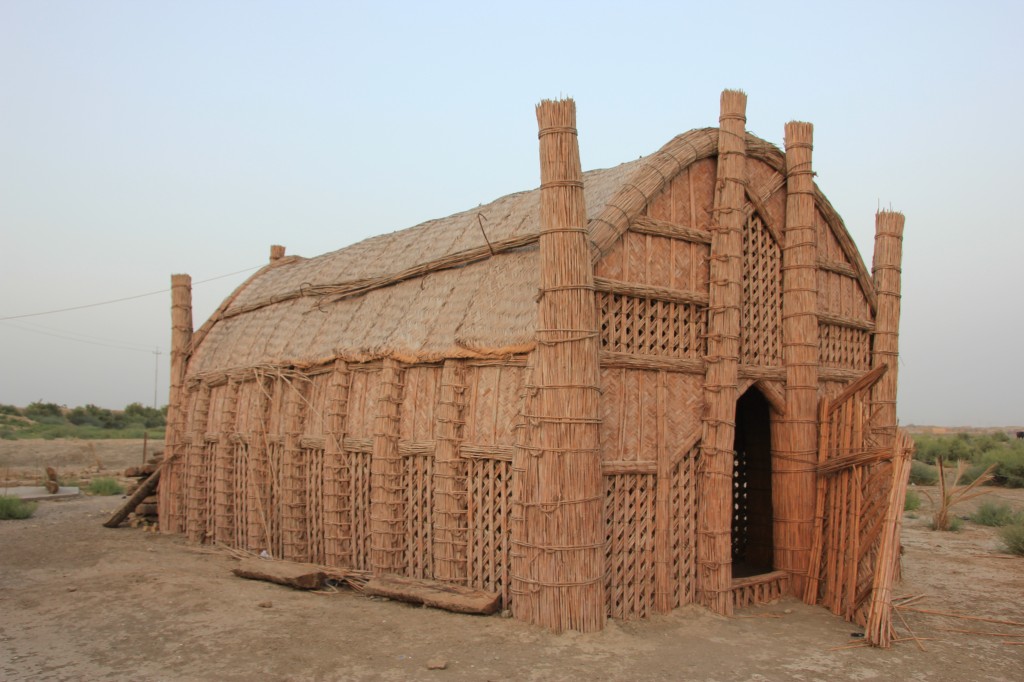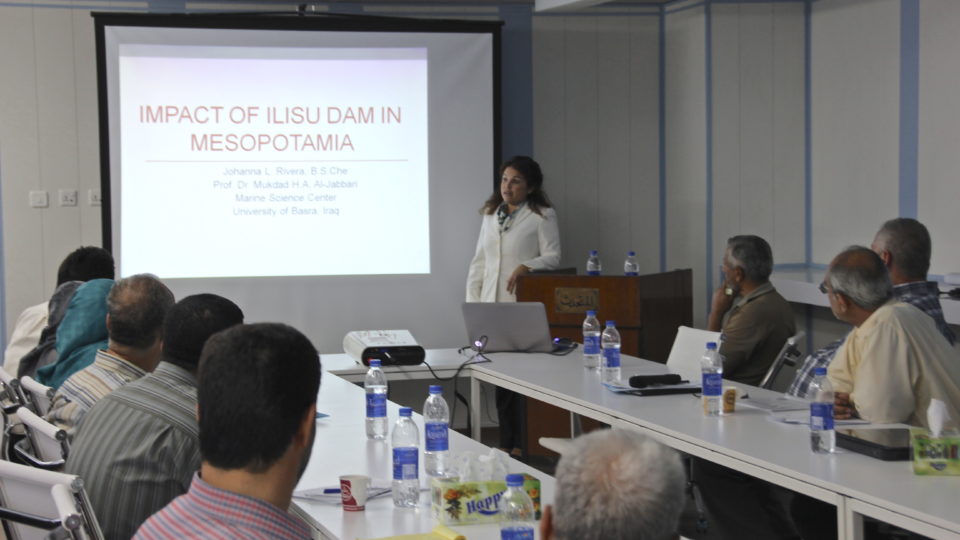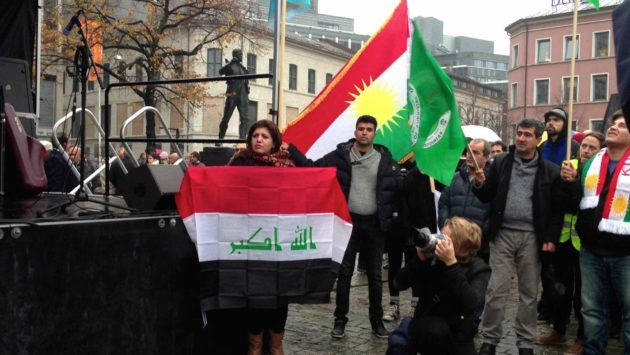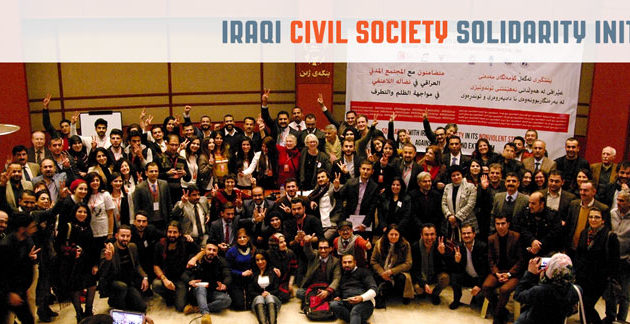Impacts of Ilisu Dam in Iraq: A Lecture at the Marine Science Center Basra University
- In the past, Southern Iraqi marsh desiccation was an environmental disaster that severely impacted a variety of species. Water buffalo, for which the marshes have provided a long-time favorable habitat, were affected by the desiccating process, with additional negative ramifications on economic livelihoods. Drying reduced the number of water buffalo in the marshes, mainly due to their dependence on available water and reeds. Additionally, the buffalo’s economic importance forced most breeders to leave the marshes and seek other wetland habitats far from the desiccated areas. However, in 2003 many breeders returned to the marshes after the re-flooding.
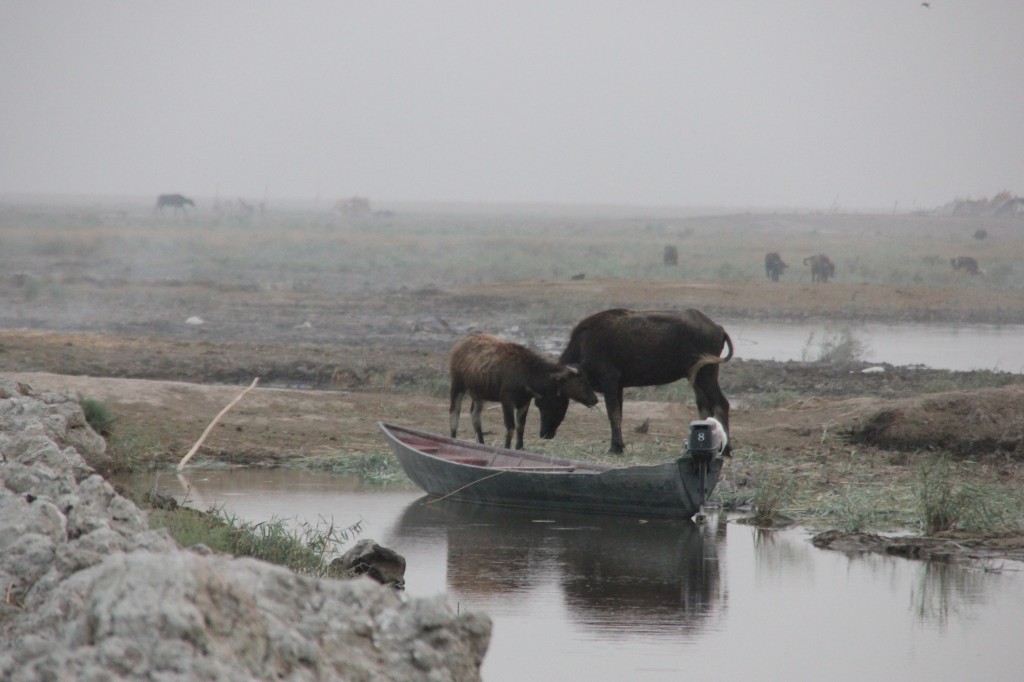
Iraq faces enormous challenges in terms of water resources. Once the cradle of civilizations, an agricultural haven, now Iraq’s land has dried significantly mostly due to man-made causes. For the past 20 years upstream dams in the Euphrates have reduced Iraq’s water income, and now the most important water lifeline in the country, the Tigris River, will be further reduced having catastrophic effects on the lives of Iraqis who will see their livelihoods affected by increased drought and loss of lands due to lack of water. I was preparing a presentation for the Save Tigris Workshop in Basra with the advise of Dr. Jabbari, an Iraqi professor which has extensive experience in transboundary water issues in the Euphrates Tigris Basin. I received a call from Basra University, Marine Science Center inviting me to give a lecture about the Ilisu dam and its impact in Iraq to its faculty as part of a conference “Learning by Doing”. It was a great opportunity to connect civil society and academia. The Marine Science Centre at Basra University is the major research center in Iraq and in the region.
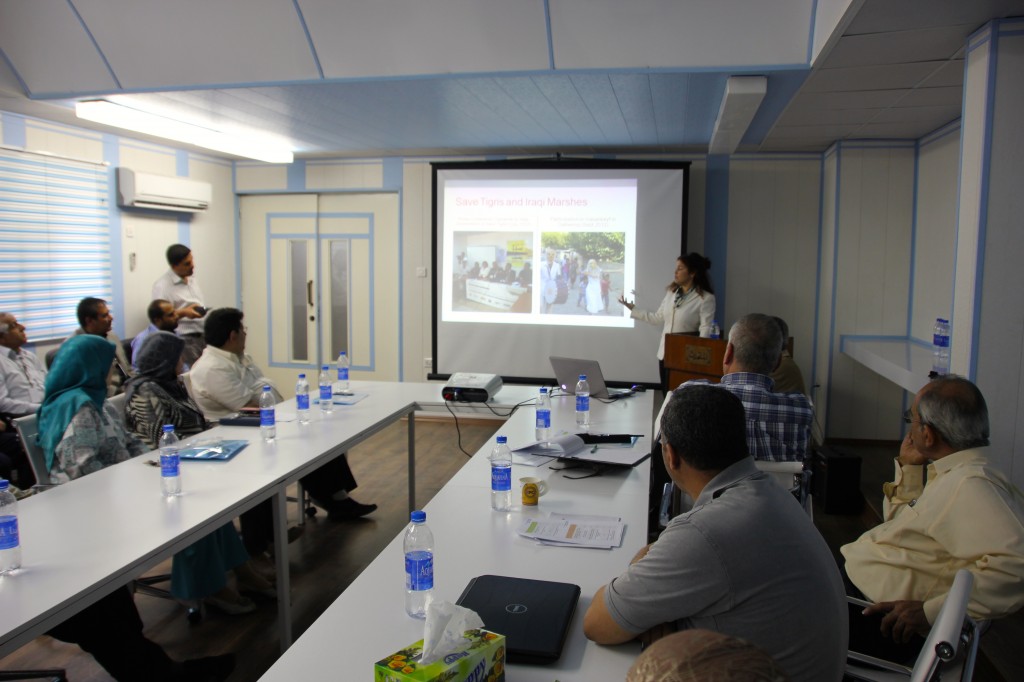
Basrah, Iraq’s southern most city, is unique in that it is where the Tigrisand Euphrates rivers meet, it is said to be the place where the garden of Eden once was; yet it faces unique water challenges. The city’s water system suffers from high salinity due to intrusion of seawater from the gulf into the Shat Al Arab. the confluence of Tigris-Euphrates caused by decreased flow from the river. The intrusion goes up to almost half of Shatt Al Arab, about 75-90 kilometers affecting most of the city of Basra, in particular Faw, where the population suffer from health issues related to the water contamination.
Ilisu dam is the biggest dam being built by Turkey on the Tigris River, and one of 22 dams built as part of GAP mega-project in Turkey. When all dam projects are implemented, Turkey’s total storage capacity in the Euphrates will reach 94.78 BCM (three times the river’s average annual discharge at the Syrian/Iraqi border. On the Tigris the storage will reach 17.6 BCM (about the average annual flow at the Turkish/Iraqi border), this means total control over Iraqi water!
During my presentation, I discussed with the faculty the negative effects on the socio-economical, cultural and environmental resources of a country which is healing from deep wounds cause by years of war and economic sanctions. Ilisu dam will cause further drought in a country that has been severely hit during 2007-2009. Other significant effects are water pollution, degradation of water quality, and loss of agricultural land. Iraq will loose up to 47% of its annual water income and about 40% of its agricultural lands and in turn decrease its agricultural output causing unemployment and subsequent displacement of Iraqi farmers. In Northern Iraq we have sees an example of this with the Alwand River (another Tigris tributary) drying due to upstream diversion and damming in Iran, having devastating consequences for farmers.

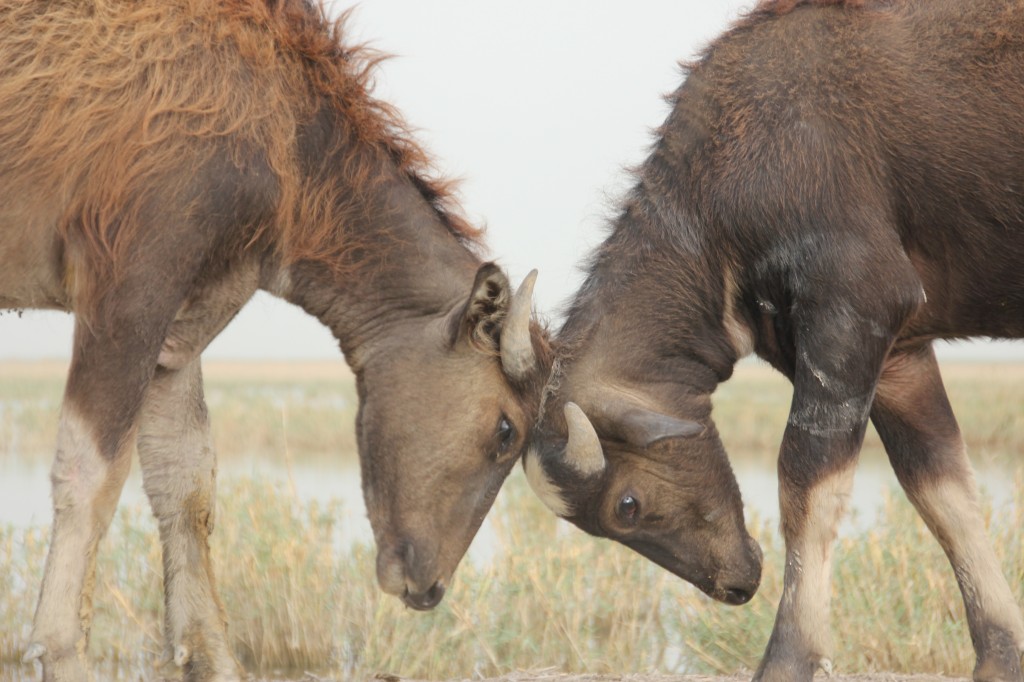
The faculty was very receptive but challenged me on different levels. They brought the issue of other dams being built inside Iraq. At the end of the session, they asked how they could provide support. One of the visiting academics commented that Turkey was developing its agricultural sector by building dams for irrigation. Turkey has the right to develop its agriculture, but not in violation of international law and at the expense of millions of Iraqis. Both governments have to reach an agreement for cooperation and equal shares of the Tigris River. We discussed the role of academia, how they have the technical expertise and the access to unique information that can inform policy change for the benefit of both Turkey and Iraq.
The water issue in Iraq has local, national and regional dimensions. The Iraqi government is taking little and slow steps to implement water management policies at the national level, and Maliki said last week that the water committee must take transboundary issues as a priority. At the regional level, on one hand Iraq is vulnerable as a downstream riparian state, on the other hand the Iraqi government has tools to bargain, Iraq being one of Turkey’s biggest trade partners. In 2008 Turkey was the 2nd most important import partner with 20.6% of total export trade, they could bring this to the bargaining table with Turkey. Through projects like GAP, and Ilisu dam, Turkey is strengthening its economic, political and securing its hegemonic position and will have full control over Iraqi water resources, placing Iraq in a vulnerable political position. It is not an easy task that can be solved with one lecture, but this meeting was the start of many more discussions on transboundary water issues that need to happen at a country wise scale. The university is a great place to have these discussions because is the center of knowledge where more open and scientific discussions can be held. Here is a link to the presentation:
Impacts of Ilisu Dam in Mesopotamia 
